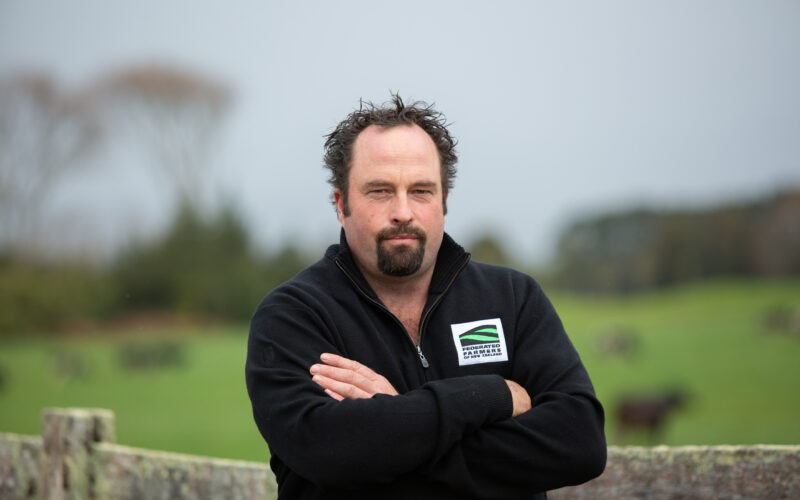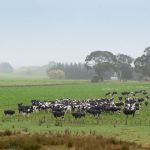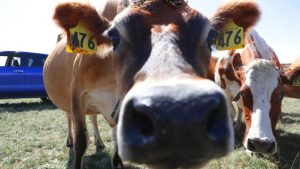
Federated Farmers went in to bat for farmers, which saw the Government agree to fast-track and prioritise dairy-related work via applications.
Urgent changes to immigration rules will help relieve some of the pressure on short-staffed dairy farmers this calving season, Federated Farmers say.
Richard McIntyre, the organisation’s immigration spokesperson, says getting staff on-farm has been a massive challenge for farmers this season, especially those in the thick of calving.
“We’ve been working closely with the Minister of Immigration and Immigration NZ to find ways to ease some of that stress and prevent animal welfare issues during calving.
“I’m really pleased our advocacy has paid off, with the Minister agreeing to some limited exceptions for existing visa applications where the applicant is already onshore, which should help them get on-farm as soon as possible.
“This will offer a pressure release for our farming families and businesses.”
Dairy farm workers who have already submitted their visa applications will be temporarily exempt from the requirements to meet the minimum skills threshold, have relevant prior experience, and meet a minimum standard of English.
This will apply to applicants for a Dairy Cattle Farm Worker (ANZSCO code 841512) role who were in New Zealand on 2 August 2024, applied for an AEWV between 7 April to 2 August, and have not had their application decided.
Minister Standford has also agreed to extend priority processing for dairy farm worker and dairy farmer applications until 1 September.
“Federated Farmers went to Government with some very serious concerns about farmer wellbeing, health and safety, and animal welfare this season,” McIntyre says.
“When farmers are short-staffed, it puts a huge amount of pressure not only on them personally, but also their family and farm teams.
“To the Minister’s credit, she’s taken the time to listen, she’s understood the issues, and she’s moved quickly to address them.”
It’s estimated there are more than 140 migrant dairy workers with pending visa applications already on our shores, who should now be able to be cleared for work.
With Immigration NZ staff swamped by up to 80,000 visa applications to process each month, giving dairy visa applications priority until September 1 is important.
“These changes should relieve some of that immediate pressure people have been feeling and get us through the bulk of South Island calving,” McIntyre says.
“They’re a very positive step, but I’m incredibly conscious that they’re only a band-aid solution to see us through the current crisis.”
He says Federated Farmers will now turn their attention to some of the longer-term challenges with the immigration system.
“The risk is that if we don’t move quickly to address the bigger systemic issues with immigration, we will find ourselves back in this exact same situation next year.”
In April, dairy farmers who had submitted or were about to submit visa applications were caught out by sudden changes to the Accredited Employer Work Visa (AEWV).
The new rules required employers seeking to hire migrants in ANZSCO level 4 and 5 roles to advertise those roles for 21 days, and to list roles with Work and Income so local jobseekers could apply.
All migrant applicants faced a new minimum skills requirement, to meet a minimum standard of English language if applying for an ANZSCO skill level 4 or 5 role.
Federated Farmers went in to bat for farmers, which saw the Government agree to reduce the standard advertising period from 21 days to 14, and to give priority to dairy visa processing.
“Those out-of-the-blue rule changes in April came as a very unwelcome surprise to farm employers who already had visa applications in the pipeline,” McIntyre says.
“Whatever longer-term settings are agreed, farmers need some certainty.”
Federated Farmers’ July Farm Confidence Survey showed recruiting skilled and motivated staff is the hardest in more than a decade, with the ability to recruit now sitting at the lowest level since July 2012.
“It’s simply not good enough for New Zealand’s largest export earner to be scrambling to fill roles,” McIntyre says.
“Of course we’d love to be hiring more Kiwis, but we’ve also got to be realistic about this. It’s hard to attract people to live in some of our more remote communities.
“Farmers expect to see efficient, practical – and most of all, stable – immigration settings that recognise this.”
Federated Farmers, New Zealand’s leading independent rural advocacy organisation, has established a news and insights partnership with AgriHQ, the country’s leading rural publisher, to give the farmers of New Zealand a more informed, united and stronger voice. Federated Farmers news and commentary appears each week in its own section of the Farmers Weekly print edition and online.
You can now read the most important #news on #eDairyNews #Whatsapp channels!!!
🇺🇸 eDairy News INGLÊS: https://whatsapp.com/channel/0029VaKsjzGDTkJyIN6hcP1K

























